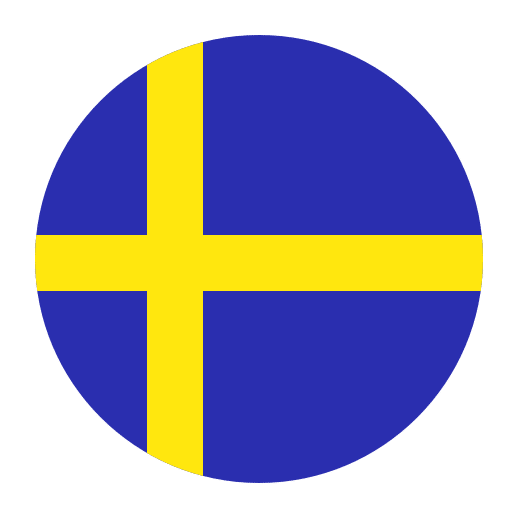Learning a new language is an exciting and enriching experience, and Swedish is no exception. One of the key aspects of mastering any language is expanding your vocabulary, especially in areas that are relevant to your daily life or areas of interest. For students and lifelong learners, knowing the Swedish terms for various academic subjects can be incredibly useful. Whether you’re planning to study in Sweden, have an interest in Swedish educational materials, or simply want to expand your Swedish vocabulary, this article will provide a comprehensive guide to Swedish words for academic subjects.
Basic Academic Subjects
Let’s start with the basics. Here are some fundamental academic subjects and their Swedish translations:
1. **Mathematics** – Matematik
2. **Science** – Vetenskap
3. **History** – Historia
4. **Geography** – Geografi
5. **English** – Engelska
6. **Swedish** – Svenska
7. **Art** – Konst
8. **Music** – Musik
9. **Physical Education** – Idrott
These are the core subjects that form the foundation of most educational systems, and knowing their Swedish counterparts is a great starting point.
Languages
Language studies are a crucial part of academia. Here are translations for some commonly studied languages:
1. **French** – Franska
2. **German** – Tyska
3. **Spanish** – Spanska
4. **Italian** – Italienska
5. **Chinese** – Kinesiska
6. **Japanese** – Japanska
7. **Russian** – Ryska
8. **Latin** – Latin
9. **Greek** – Grekiska
Sciences
The field of science is vast and includes numerous specialized subjects. Here are some key scientific disciplines and their translations:
1. **Biology** – Biologi
2. **Chemistry** – Kemi
3. **Physics** – Fysik
4. **Astronomy** – Astronomi
5. **Geology** – Geologi
6. **Ecology** – Ekologi
7. **Botany** – Botanik
8. **Zoology** – Zoologi
These terms are especially useful if you are pursuing a career in the sciences or have a keen interest in these subjects.
Social Sciences
Social sciences help us understand human behavior and societies. Here are some important subjects in this field:
1. **Psychology** – Psykologi
2. **Sociology** – Sociologi
3. **Anthropology** – Antropologi
4. **Political Science** – Statsvetenskap
5. **Economics** – Ekonomi
6. **Linguistics** – Lingvistik
7. **Education** – Pedagogik
8. **Philosophy** – Filosofi
Humanities
The humanities cover a broad range of subjects that explore human culture and experience. Here are some key subjects and their Swedish translations:
1. **Literature** – Litteratur
2. **History** – Historia
3. **Religious Studies** – Religionsvetenskap
4. **Art History** – Konsthistoria
5. **Classics** – Klassiska studier
6. **Philosophy** – Filosofi
7. **Cultural Studies** – Kulturstudier
Vocational and Professional Studies
In addition to traditional academic subjects, many students pursue vocational and professional studies. Here are some common fields and their translations:
1. **Engineering** – Ingenjörsvetenskap
2. **Medicine** – Medicin
3. **Law** – Juridik
4. **Business** – Företagsekonomi
5. **Computer Science** – Datavetenskap
6. **Nursing** – Sjuksköterskeutbildning
7. **Architecture** – Arkitektur
8. **Journalism** – Journalistik
Specialized and Emerging Fields
As our world evolves, so do the fields of study. Here are some specialized and emerging academic subjects along with their Swedish translations:
1. **Environmental Science** – Miljövetenskap
2. **Data Science** – Datavetenskap (Note: The same term is used for Computer Science)
3. **Artificial Intelligence** – Artificiell intelligens
4. **Cybersecurity** – Cybersäkerhet
5. **Biotechnology** – Bioteknik
6. **Neuroscience** – Neurovetenskap
7. **Public Health** – Folkhälsa
8. **Urban Planning** – Stadsplanering
Practical Tips for Learning Swedish Academic Vocabulary
Now that you have a comprehensive list of Swedish words for academic subjects, here are some practical tips to help you incorporate these terms into your vocabulary:
Flashcards
One of the most effective ways to memorize new vocabulary is by using flashcards. You can create physical flashcards or use digital tools like Anki or Quizlet. Write the English term on one side and the Swedish translation on the other. Regularly review your flashcards to reinforce your memory.
Labeling
If you’re in an educational setting or have access to textbooks and materials, try labeling different sections with their Swedish names. For example, write Matematik on your math book or Historia on your history notes. This visual association can help reinforce your learning.
Language Exchange
Find a language exchange partner who is a native Swedish speaker. You can practice discussing academic subjects in Swedish, which will help you become more comfortable with the terminology in a conversational context. Websites like Tandem and ConversationExchange can help you find language partners.
Reading and Writing
Immerse yourself in Swedish academic materials. Read textbooks, articles, and research papers in Swedish. Try writing essays or summaries of what you’ve read, using the Swedish terms for the subjects. This will help you become more familiar with the vocabulary in a practical context.
Online Courses
Many online platforms offer courses in Swedish. Enroll in a course that covers one of the subjects you’re interested in. Platforms like Coursera, edX, and even YouTube have a plethora of educational content available in Swedish.
Use Technology
There are numerous apps and websites designed to help you learn and practice Swedish vocabulary. Apps like Duolingo, Babbel, and Memrise have specific modules for academic vocabulary. Additionally, Google Translate and other translation tools can be handy for quick translations and pronunciation guides.
Conclusion
Mastering the Swedish words for academic subjects can significantly enhance your language skills and open up new opportunities for learning and communication. Whether you’re a student, a professional, or a language enthusiast, having a solid grasp of these terms will allow you to engage more deeply with Swedish educational materials and conversations.
Remember, language learning is a journey, and expanding your vocabulary is a crucial part of that journey. Use the tips provided to practice and reinforce your learning, and don’t be afraid to make mistakes along the way. With time and persistence, you’ll find yourself becoming more confident and proficient in using Swedish academic vocabulary.
Happy learning!

